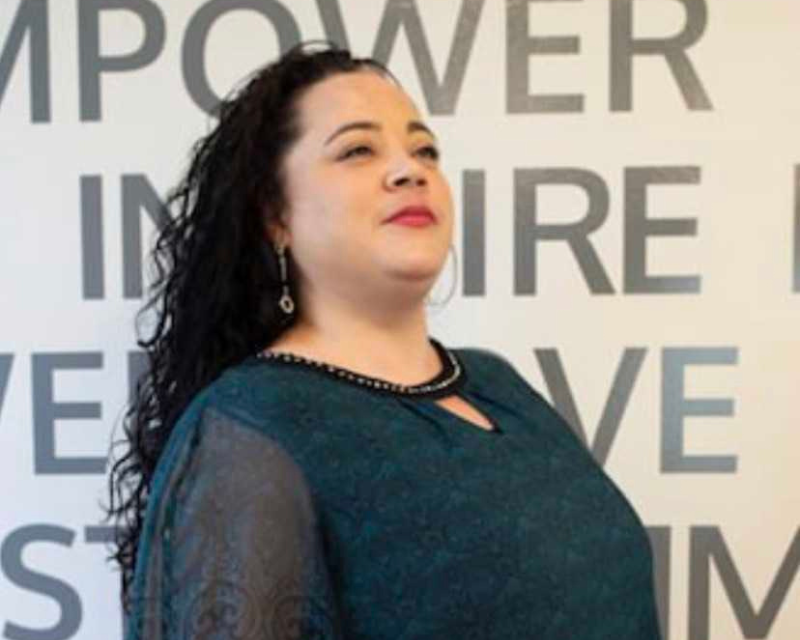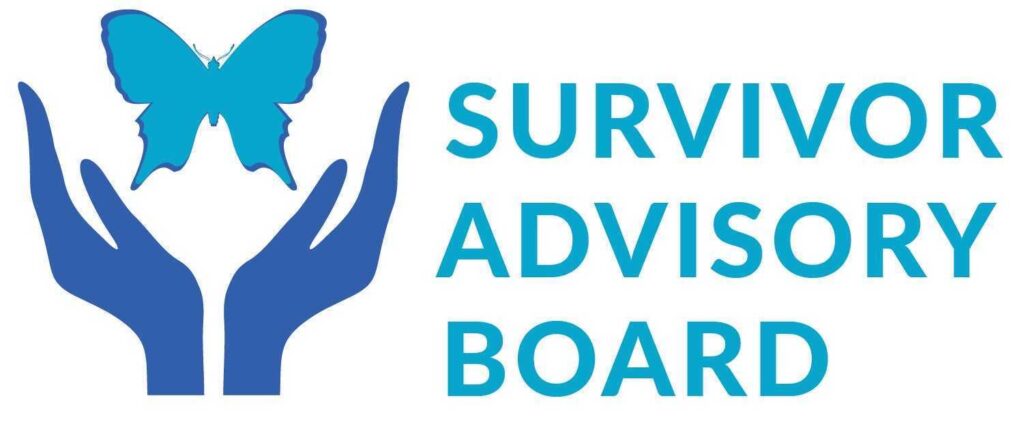
“I was convinced and afraid that if I talked, someone would hurt me or worse. I felt so trapped; the police wanted to get me and my trafficker wanted to get me.”
I was on the streets for six years. I was trafficked by multiple people who took advantage of a drug addiction I had developed. They would intentionally make me sick and use drugs to torture me until I did what they wanted. Once, I was forced to perform sex acts with multiple members of MS-13 while they threatened me with an axe and knife. Even after that, I did not even consider calling the police.
Now, I work with other victims and know that there are law enforcement agencies and officers who are committed to protecting victims and survivors of human trafficking. But back then, the police had never done anything to earn my trust or respect. One told me: “You are not a productive member of society.” Even if they could have helped, cops had always made me feel bad about myself. To me, I was living in my worst nightmare but even then, the cops were the boogieman. They harassed me and followed me around because of things that they thought my family members had done.
While in jail on a drug-related charge, the police hounded me to report my trafficker. They had recognized me from my time on the streets and were trying to prosecute my trafficker. At that moment, I refused to help them. I told them I had no idea what they were talking about. Because at that moment, my trafficker was in jail with me. He had other girls who could harm me. I was convinced and afraid that if I talked, someone would hurt me or worse. I felt so trapped; the police wanted to get me and my trafficker wanted to get me.
Someone from Empowerment Collaborative of Long Island came to see me while I was in jail. They showed me that I didn’t have to go back to the streets, that I had other options and that I had hope. I went through their program when I got out of jail, got an apartment with their help, and began trauma therapy.
I think back to the kind of state I was in then. If someone had said, you have to provide information to the police if you want to get help, I would have never gotten help. I would have continued trying to make it on my own, because the risk of my trafficker hurting me or getting someone to find me was just too high. The police had never protected me before, how could I trust that I would be safe if I reported my situation to them? In the moment you reach out for help, you’re thinking about how you’re going to eat, how you’re going to get shoes to wear. If someone says that everything will be reported to the police, then you’ve got to think about, “Oh man, what if the police try to find me, to talk to me.” That’s just too much to think about when you’re trying to survive.
I now work for Empowerment Collaborative of Long Island as the Survivor Advisory Board Co-Founder and President. I work closely with law enforcement now and we have 34 partner agencies, including HSI, local trafficking unit, and ICE. I am on-call 24/7. If there’s going to be a raid at a worksite or hotel, they call me and I show up with them. I talk to anyone I meet and explain what resources are available. When I was on the streets, I felt so alone and so now I try to make sure no one feels that way.
Many of my clients have the same concerns I did. For those who are undocumented, their fear of the police is even greater. Once, HSI was called down to a hotel where the hotel owners were taking bribes from traffickers. One woman I talked to there refused all help from the police, even food. She told me that she had escaped gang violence in El Salvador and even though her situation here was bad, she would never go back to El Salvador. Another woman I worked with came from Honduras. Her trafficker had promised her a place to live and a good life. Instead, she got endless domestic work and fear. Her trafficker told her that if she ever left his house, he would call the police and she would immediately be deported back to Honduras. She did not step foot out of the property for two and a half years.
Though we may not agree with how victims and survivors often see law enforcement, that is the reality they live in. There is so much fear and confusion. Fear of deportation, fear of retaliation, fear for the safety of ourselves and our families. Very few people understand their rights.
Now, when I work with victims and survivors, my only goal is to get resources to help that person. I tell them, “You have a choice.” You can choose how you want to go about your healing and you can choose the help you want. I am here to support you. You decide if and when you are ready to report your situation.
I’ve helped to train 5,000 community members, I’ve spoken at international symposiums, been featured in newspapers, all because I want to educate our community. I want to empower people to know what kind of help is available to them, so that they can make good decisions. Right now, I am advocating for the immunity bill in New York State that would make sure people will not be charged with prostitution if they are victims/witnesses of a crime. I am also working to make this federal law.
– Laura Mullen
Survivor Advisory Board Co-Founder and President, Empowerment Collaborative of Long Island
